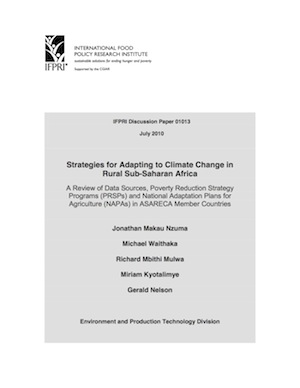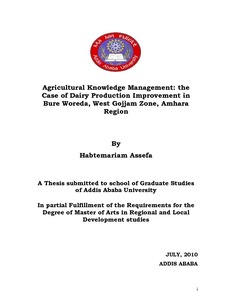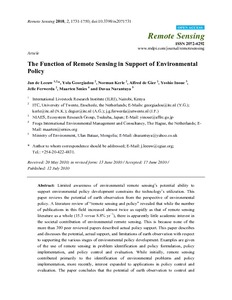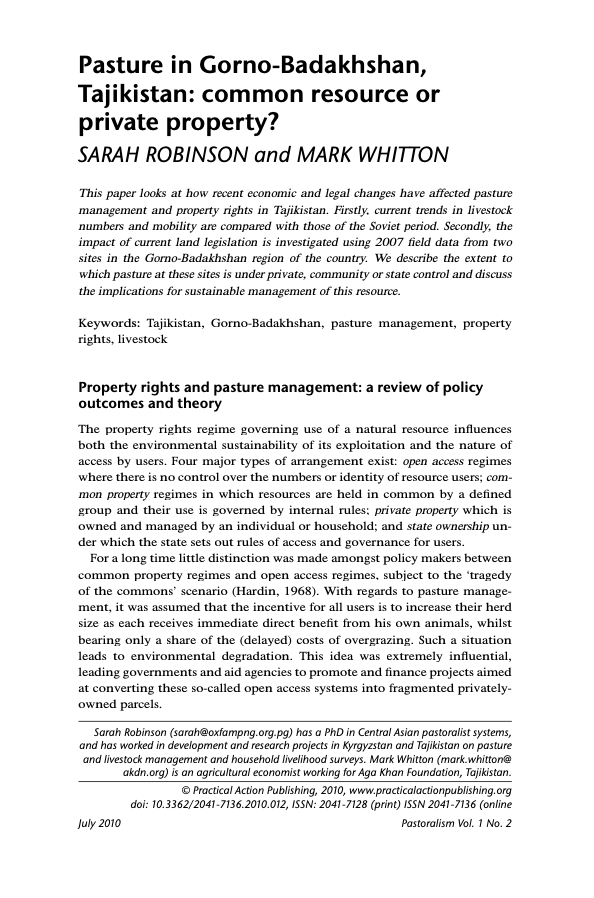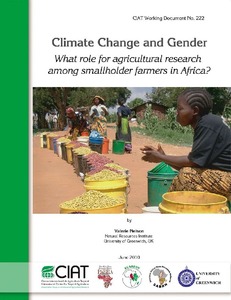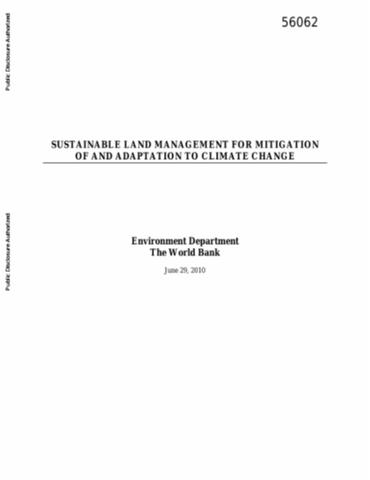Strategies for adapting to climate change in rural Sub-Saharan Africa
Given limited resources, adaptation strategies must target those populations most vulnerable to global change and equip those unable to adapt—generally the poorest—with the tools and incentives that will enable them to do so. ASARECA has recently carried out a study to enhance the understanding of climate change in the 10 ASARECA member countries.
Putting Pastoralists on the Policy Agenda: Land Alienation in Southern Ethiopia
Includes land alienation in the case study sites; impacts of land alienation; coping strategies; conclusions and policy recommendations. Found that livestock numbers are declining dramatically in the area, land degradation is increasing, people are becoming more vulnerable to drought and famine, and resource-based conflicts are increasing in severity.
Agricultural knowledge management: Case of dairy production improvement Bure Woreda, West Gojjam Zone, Amhara Region
The government of Ethiopia gives great attention to agriculture and rural development for the country’s economy development. Dairy development is one of the components of agricultural development. To improve dairy production in certain locality, dairy producers should able to access and use appropriate knowledge for the particular problem at the right time.
CARE Ethiopia Pastoral Livelihoods Programs in Oromia Region
Indexed Based Livestock Insurance (IBLI): OPaDC activities and projects relevant to and complementing IBLI
The function of remote sensing in support of environmental policy
Limited awareness of environmental remote sensing’s potential ability to support environmental policy development constrains the technology’s utilization. This paper reviews the potential of earth observation from the perspective of environmental policy.
Pasture in Gorno-Badakhshan, Tajikistan: Common Resource or Private Property
This paper looks at how recent economic and legal changes have affected pasture management and property rights in Tajikistan. Firstly, current trends in livestock numbers and mobility are compared with those of the Soviet period. Secondly, the impact of current land legislation is investigated using 2007 field data from two sites in the Gorno-Badakhshan region of the country.
Climate change and gender: what role for agricultural research among smallholder farmers in Africa?
This study was commissioned to provide an understanding of the complex impacts climate change will likely have on existing gender and social inequalities.
Sustainable Land Management for Mitigation of and Adaptation to Climate Change
The climate change (CC) caused by increase in atmospheric concentration of CO2 and other Greenhouse Gases (GHGs), can be addressed through adaptation and mitigation strategies. Adaptation consists of strategies which minimize vulnerability to CC.
Livestock input supply and service provision in Ethiopia: challenges and opportunities for market-oriented development
Livestock production in Ethiopia has, for long, remained subsistence with limited market-orientation and poor institutional support. Producing for the market requires
re-orientation of the production system and development of a knowledge based and responsive institutional support services. Institutional support services of extension,


